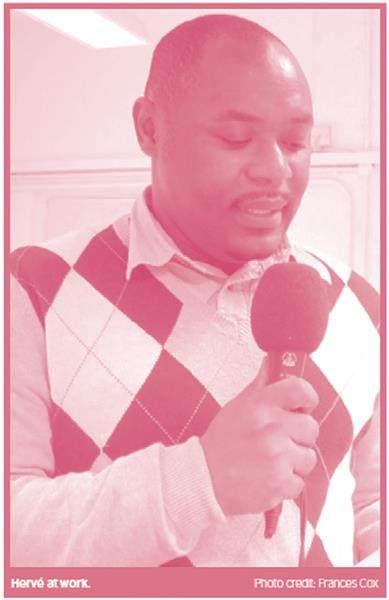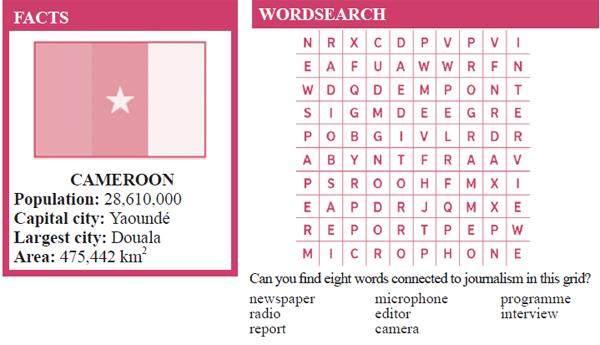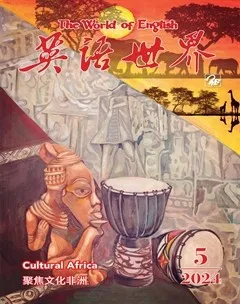Cameroon: The Journalist’s Story
British Council


The British Council is celebrating the diversity of Africa by bringing you this series of articles from around the continent to help you with your English language studies. Today we visit Cameroon.
Cameroon: The Journalists Story
QUESTIONS AND ANSWERS
A journalist from Cameroon, Hervé Yonkeu, has worked for newspapers and radio stations in Cameroon and for international broadcasters including the BBC. But how did he get started in journalism, and where did he get his inspiration from?
Hi Hervé. Where are you right now?
I am visiting Senegal in West Africa, but I come from Cameroon. I was brought up in the north. It is an area near the border with Nigeria, Niger and Chad, and it is always very hot there. It is in the French speaking part of Cameroon and so as a child at school I studied French.
When you were young, what did you want to do?
My first strong ambition was to be a pilot. I was studying science and maths at school, not literature, and really I wanted to train as a pilot!
What happened to change your mind?
I used to listen to a special radio programme which is well known in Cameroon called ‘La Radio de Vos Vacances—that means ‘radio for your holidays in English. It encouraged young people to participate. At first I was just a listener, and then I took part as a student journalist. I wrote some pieces for them, worked in the radio studio and after that I was hooked! That was my new ambition.
So after secondary school did you start to study journalism?
No! My parents wanted me to continue with science and mathematics because those were my best subjects. I had to move to the capital, Yaoundé—more than 1,000 kilometres from my home—to enrol at university.
But later you switched to journalism?
Yes—I changed course. At that time there was only one place where you could study journalism. It was a private college. But if, like me, you didnt have much money, you could pay in instalments. It was hard work, but my experience at ‘La Radio de Vos Vacances helped me. I knew how to write for radio and how to speak in front of the microphone. I was less stressed than the others.
Was it easy getting a first job?
No! It wasnt easy to find work, so with two of my friends I set up, lets say, a small press agency. We sent a letter to some organisations offering them our services. After some time AFP (Agence France Presse) answered, and so we started to be correspondents. We reported daily on general events in Cameroon, and sometimes they asked us to follow up some stories of what was happening in the country. Those were the early days and that is how I got started!
LEARNING ACTIVITIES
Activity 1
Put these questions in the correct order:
1. come / you / do / from / Where?
2. ambition / was / first / your / What?
3. did / What / school / subjects / study / you / at?
4. Where / university / go / did / you / to?
5. next / What / happened?
Activity 2
Match the questions to these answers from Hervés interview:
A. My first ambition was to become a pilot.
B. I went to university in Yaoundé, the capital.
C. I changed my course to study journalism.
D. I studied maths and science.
E. I come from the north of Cameroon.
Over to you
How would you answer questions like those in Activity 1?
Think about your own story. When you were a child what did you want to do? What are you doing now?
What are your plans for the future?
A journalists job is to investigate facts, so he or she needs to ask a lot of questions:
What / where / when / how / why?
Think about a recent news event, and use these question words to make sentences to ask questions about it.
You could invite a friend to try and answer!
Answers: Activity 1 1. Where do you come from? 2. What was your first ambition? 3. What subjects did you study at school? 4. Where did you go to university? 5. What happened next?
Activity 2
1. E; 2. A; 3. D; 4. B; 5. C

